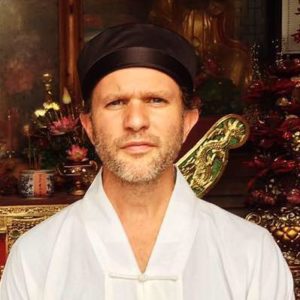Daoism and Daoist thought is something that many acupuncturists have been exposed to. It might have been part of what launched our interest in studying medicine. And perhaps you’ve had the experience of reading books like the Dao De Jing and come away more with a sense of confusion than clarity. It’s challenging for us as modern westerners to grasp the meaning of writings that have come to us from across the expanse of time, culture and language.
Daoist traditions are alive, but they are passed down within the confines and structure of community
Listen in to this conversation on Daoism, hermeneutics, living traditions and medicine.
In This Conversation We Discuss:
- Influence of grandmother who was born in China
- Daoism can not be studied alone, there is an aspect of community
- The three treasures of Dao, Scripture and Teachers
- Daoism is a living tradition
- The influence of the 1960’s
- Importance of access to the classics and how to study them
- Approaching the reading and study of scripture with an eye toward our cultural biases and filters
- Daoism and medicine
- Allowing the text to change us, and change with us over time
- Prayer and Talisman
- Nei Jing chapter 72
- Speaking and listening
- In learning medicine you have to make your own bones
 Josh Paynter, L.Ac
Josh Paynter, L.Ac
In the course of my professional work I have been the acupuncturist at St. Johns Riverside Hospital in Yonkers, treating a wide variety of patients in a general hospital environment. I’ve been a clinic supervisor at Lutheran Medical Center in Brooklyn, supervising acupuncturists in both the Orthopedic Neurological Rehabilitation and Oncology units. I have worked in conjunction and cooperation with; Nutritionists, Chiropractors, Medical Doctors, Physical Therapists, Yoga teachers, Nurses, Psychologists, Surgeons, Dentists, and many more. I am a team player when it comes to patient care. There is a time and place for all types of medicine, and it is important to have strong relationships with the professionals around you.
As a professor of Chinese medicine, I taught for eight years in the Chinese Medicine Department of the Touro College School of Health Sciences, serving as the Chair of both the General Studies Department and the Acupuncture Department. While teaching there I had the privilege of working with some of the great people in Chinese medicine; both my colleagues and my students who have become leaders in the field.
I have served on all three of Chinese medicine’s main standard-setting comittees in the U.S.. For a while I had the pleasure of working as a subject matter expert for the development of the national board exams (NCCAOM). I was also a site visitor tasked with visiting Chinese medicine schools to investigate their programs for elligibility for accreditation (ACAOM). I also had a chance to be a part of the agency that certifies that all acupuncturists are competent at providing care utilizing hygienic technique (CCAOM).
I have been dedicated to Chinese studies for nearly thirty years. I received a B.A. in Chinese Studies from Bard College with a focus on Daoist traditions, including studying at Yunnan University in Kunming, China. My Master’s Degree in Traditional Oriental Medicine is from Pacific College of Oriental Medicine. I have also completed training at Memorial Sloane-Kettering in acupuncture for the treatment of cancer patients.
Links and Resources
